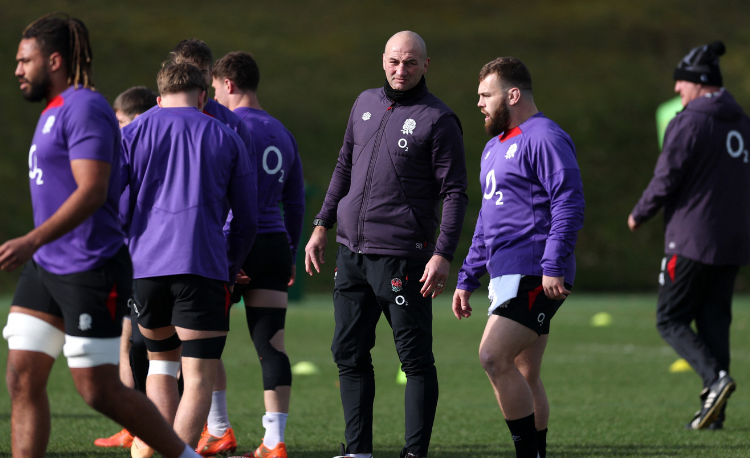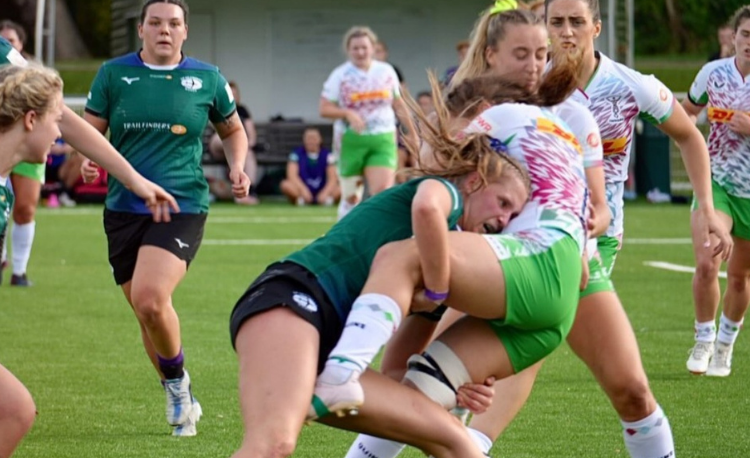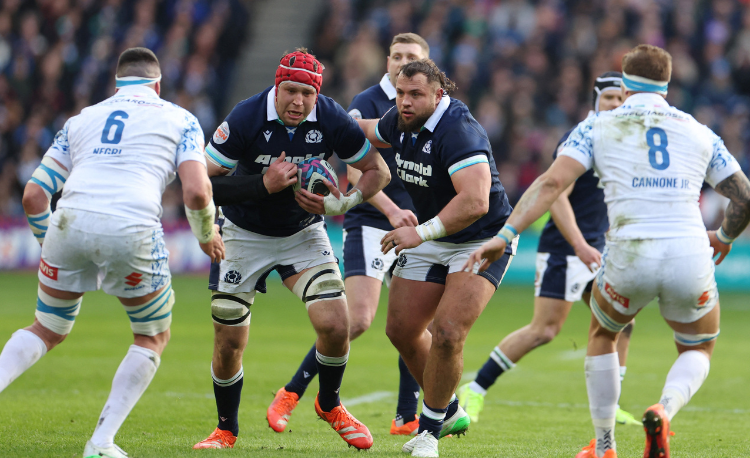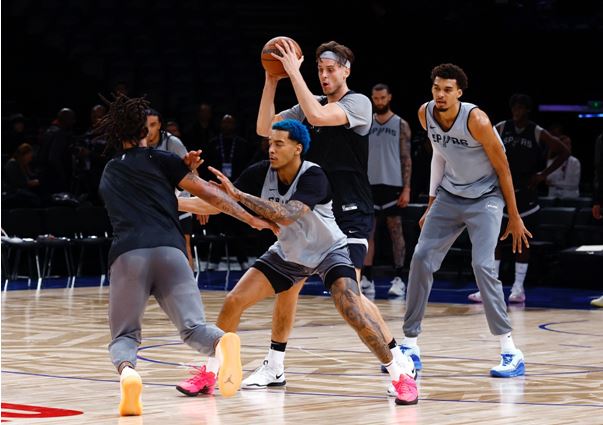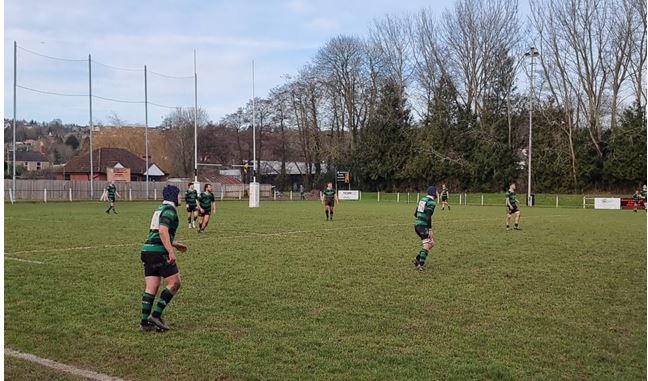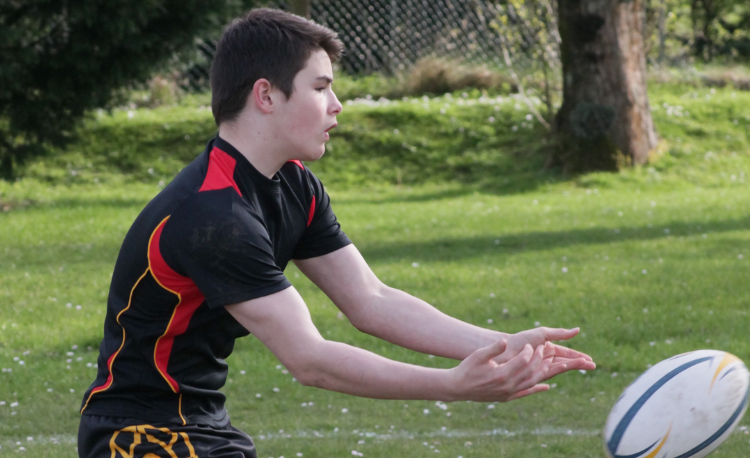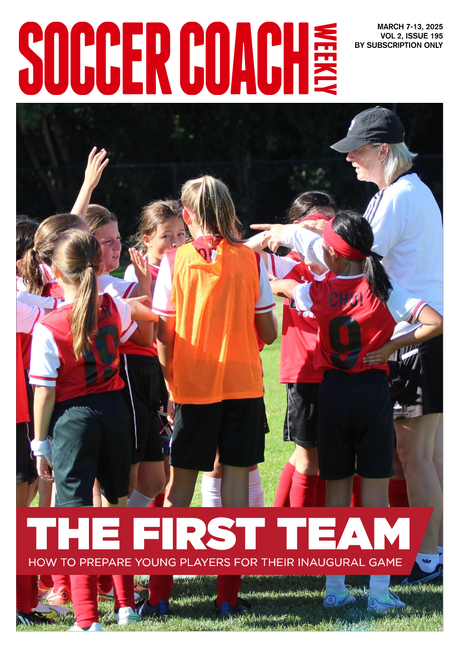Culture club: Understand the motivations and needs of your players
We know that a strong culture makes for better teams but we must recognise that ambitions and motivations are not necessarily the same as they were 15 years ago. Understand this and you can build a better culture.
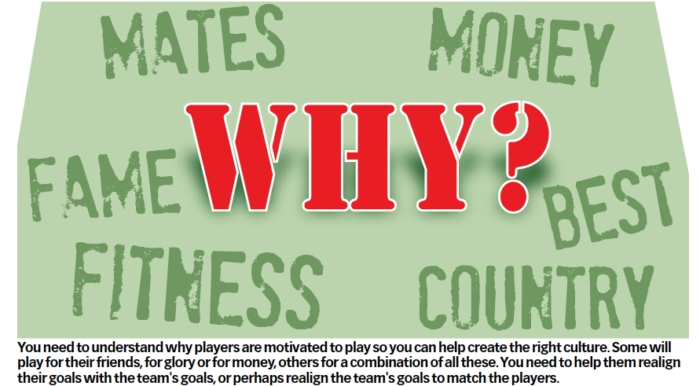
In team sports, continuity is incredibly important. In an ideal world, the members of a team constantly live, understand and are able to articulate the purpose, goals and values of the group.
Shared experiences (both good and bad), memories and a greater understanding of one another built up over time should allow team culture to grow.
The majority of successful teams have enjoyed the continuity of people necessary to establish this culture. Alongside this, however, there is a constant drive to improve the group and so some members are lost and others come in. Continuity allows those entering the team to be “initiated” and see what standards, values and behaviour are expected.
If we look at successful teams, new players into the group have often had to prove themselves to the more established (not necessarily older) players who in turn are willing to learn from those coming in. It comes from both the top and within the team.
When I was working the England Sevens, we would often welcome back players who have been out of the squad for a while. They liken the team as a family they want to come back to. It is not just the rugby that makes them feel wanted.
The reality of the modern game is somewhat different from when I first played. I remember clearly an agent telling me “loyalty is dead” and wondering when and where loyalty had died because I had not noticed.

Having reflected on this, it was clear to me that this valuable and important commodity was becoming more and more scarce and that this was having a serious effect on the development of team culture. In all honesty, over the past few years, this has become my major source of frustration and disappointment.
Professionalism has clearly improved the rugby product but, for me, what it has done is create a culture where the “why” is not so straightforward.
Why do you play the game? Is it because you love playing with your mates? Is it because you want to be the best you possibly can be? Or is it because you want to play for England? For me, the advent of professionalism allowed the "why?” to change significantly for some people.
I vividly remember a meeting at Bath RFC and a British Lion telling then owner Andrew Brownsword that he would play better if Andrew paid him a win bonus. Having just left university where I played with guys who are still my best mates for the love of the game and a few beers afterwards, this was a completely alien concept to me and one I still struggle to come to terms with.
I spoke to a couple of the players I coach to get a better perspective on this. One, a player born in England and raised in New Zealand from the age of six, is completely unable to understand the mentality of the modern player in England as his upbringing was simple... you play the game because you love it and want to wear the All Blacks jersey. The other, a marine, feels that players are increasingly playing for contracts and, as a result, themselves. This is unlikely to establish a successful team culture.
So how can you establish a successful culture when time is not on your side? There are three key factors.
As a coach, while you are hopefully a facilitator in this process, as a leader it is crucial you are living these values daily and ensuring everyone else is too. At the same time, a little encouragement can ensure that this ownership is grabbed by the players themselves.
If you look at the consistently best sides, there are a couple of key factors.
First, there is consistency in the coaching message. Sides with lots of coaches will inevitably hear lots of messages. Each coach wants to make their mark and players can start to lose the team direction. Remember, the team needs to know the “why?”
Second, many of the players come through from a young age. They know each other very well and coupled with training together for a longer period of time and an excellent attention to the basics, makes for great decision-making. Dean Ryan, former Gloucester coach, has said that good decision-making needs repeatability.
If you know and understand your team mates to such an extent, the ability to know what the person next to you will do creates time and can reduce the need for communication. In the club environment, I see many coaches just happy to play “around the corner” rugby, where the ball keeps being recycled and played with the flow going towards the same touchline.
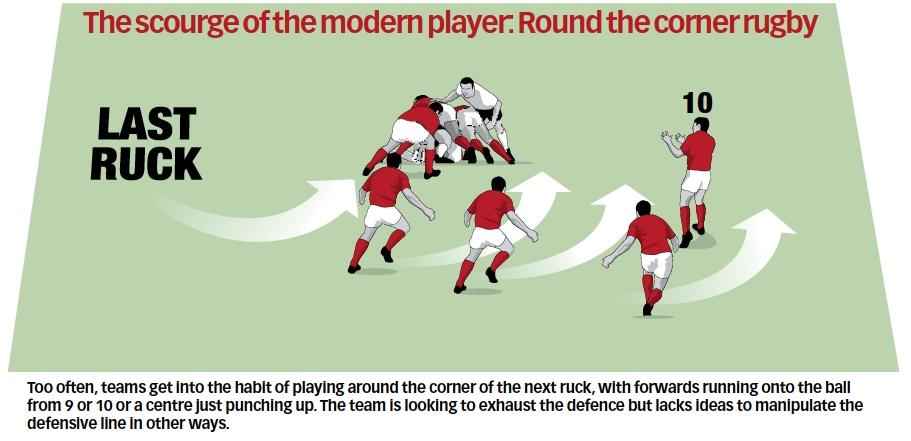
Forwards simply run off 9 or 10 and there is little variety in play. The All Blacks play a very structured game. However, it looks so natural and varied, because they have worked on it for a long time. Perhaps it might be predictable to them, but they execute it so well, it is unpredictable to the opposition and hard to contain.
Directors of rugby cannot focus on the here and now with their first XV. Negotiating contracts, planning training, selecting for the weekend ahead are all important, but just as crucial must be building the team from within for the future.
There has to be a proper structure for young players and ambitious players to progress through the teams. On the way, they can learn the culture and improve in the mould you want for the first team.
That means developing an amateur side for our semi-pro team. It means investing in an academy team and colts. We have to work harder on our own doorstep rather than look further afield.

In team sports, continuity is incredibly important. In an ideal world, the members of a team constantly live, understand and are able to articulate the purpose, goals and values of the group.
Shared experiences (both good and bad), memories and a greater understanding of one another built up over time should allow team culture to grow.
The majority of successful teams have enjoyed the continuity of people necessary to establish this culture. Alongside this, however, there is a constant drive to improve the group and so some members are lost and others come in. Continuity allows those entering the team to be “initiated” and see what standards, values and behaviour are expected.
If we look at successful teams, new players into the group have often had to prove themselves to the more established (not necessarily older) players who in turn are willing to learn from those coming in. It comes from both the top and within the team.
When I was working the England Sevens, we would often welcome back players who have been out of the squad for a while. They liken the team as a family they want to come back to. It is not just the rugby that makes them feel wanted.
LESSONS
- Create continuity within the team – players will come and go but concentrate on maintaining the core values within the core of players.
- Players create the culture – let the players drive the culture, set standards, values and behaviour.
NEW MODERN VALUE
The reality of the modern game is somewhat different from when I first played. I remember clearly an agent telling me “loyalty is dead” and wondering when and where loyalty had died because I had not noticed.

Having reflected on this, it was clear to me that this valuable and important commodity was becoming more and more scarce and that this was having a serious effect on the development of team culture. In all honesty, over the past few years, this has become my major source of frustration and disappointment.
Professionalism has clearly improved the rugby product but, for me, what it has done is create a culture where the “why” is not so straightforward.
Why do you play the game? Is it because you love playing with your mates? Is it because you want to be the best you possibly can be? Or is it because you want to play for England? For me, the advent of professionalism allowed the "why?” to change significantly for some people.
I vividly remember a meeting at Bath RFC and a British Lion telling then owner Andrew Brownsword that he would play better if Andrew paid him a win bonus. Having just left university where I played with guys who are still my best mates for the love of the game and a few beers afterwards, this was a completely alien concept to me and one I still struggle to come to terms with.
I spoke to a couple of the players I coach to get a better perspective on this. One, a player born in England and raised in New Zealand from the age of six, is completely unable to understand the mentality of the modern player in England as his upbringing was simple... you play the game because you love it and want to wear the All Blacks jersey. The other, a marine, feels that players are increasingly playing for contracts and, as a result, themselves. This is unlikely to establish a successful team culture.
LESSONS
- Players can be motivated by more than the game – can you identify and relate to these motivations?
- The team’s culture can be at odds with the need to pay the bills. Does it need to be realigned?
WORKING WITH THE NEW CULTURE
So how can you establish a successful culture when time is not on your side? There are three key factors.
- Talk about it. Everyone needs to understand why the team exists and what its purpose is. The members need to help establish the values and, therefore, behaviour expected of the group. This becomes your “Code of Conduct”. People need to understand that this is very important for the team and articulates how we all are. Everyone needs to live the values of the team and be prepared to have difficult conversations with those who are not.
- While ensuring that the environment is as professional as possible, the values should be as “amateur” as possible! My personal opinion is that if you are motivated by money then you are not on the right track.
- Live the values yourself. The team will reflect the leader so make sure you exhibit those trademark behaviour.
As a coach, while you are hopefully a facilitator in this process, as a leader it is crucial you are living these values daily and ensuring everyone else is too. At the same time, a little encouragement can ensure that this ownership is grabbed by the players themselves.
BUILDING FOR THE LONG TERM
If you look at the consistently best sides, there are a couple of key factors.
First, there is consistency in the coaching message. Sides with lots of coaches will inevitably hear lots of messages. Each coach wants to make their mark and players can start to lose the team direction. Remember, the team needs to know the “why?”
Second, many of the players come through from a young age. They know each other very well and coupled with training together for a longer period of time and an excellent attention to the basics, makes for great decision-making. Dean Ryan, former Gloucester coach, has said that good decision-making needs repeatability.
If you know and understand your team mates to such an extent, the ability to know what the person next to you will do creates time and can reduce the need for communication. In the club environment, I see many coaches just happy to play “around the corner” rugby, where the ball keeps being recycled and played with the flow going towards the same touchline.

Forwards simply run off 9 or 10 and there is little variety in play. The All Blacks play a very structured game. However, it looks so natural and varied, because they have worked on it for a long time. Perhaps it might be predictable to them, but they execute it so well, it is unpredictable to the opposition and hard to contain.
LESSONS
- Keep the coaching message simple.
- Build from within so players know each other better.
- Can good decision-making be repeatable? Only if the players’ defaults are highly tuned. The best teams make good structures look natural by excellent execution.
BUILDING FROM WITHIN
Directors of rugby cannot focus on the here and now with their first XV. Negotiating contracts, planning training, selecting for the weekend ahead are all important, but just as crucial must be building the team from within for the future.
There has to be a proper structure for young players and ambitious players to progress through the teams. On the way, they can learn the culture and improve in the mould you want for the first team.
That means developing an amateur side for our semi-pro team. It means investing in an academy team and colts. We have to work harder on our own doorstep rather than look further afield.
Newsletter Sign Up
Coaches Testimonials

Gerald Kearney, Downtown Las Vegas Soccer Club

Paul Butler, Florida, USA

Rick Shields, Springboro, USA

Tony Green, Pierrefonds Titans, Quebec, Canada
Subscribe Today
Be a more effective, more successful rugby coach
In a recent survey 89% of subscribers said Rugby Coach Weekly makes them more confident, 91% said Rugby Coach Weekly makes them a more effective coach and 93% said Rugby Coach Weekly makes them more inspired.
Get Weekly Inspiration
All the latest techniques and approaches
Rugby Coach Weekly offers proven and easy to use rugby drills, coaching sessions, practice plans, small-sided games, warm-ups, training tips and advice.
We've been at the cutting edge of rugby coaching since we launched in 2005, creating resources for the grassroots youth coach, following best practice from around the world and insights from the professional game.



